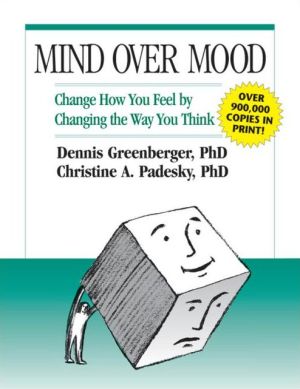Mad in America: Bad Science, Bad Medicine, and the Enduring Mistreatment of the Mentally Ill
Schizophrenics in the United States currently fare worse than patients in the world’s poorest countries. In Mad in America, medical journalist Robert Whitaker argues that modern treatments for the severely mentally ill are just old medicine in new bottles, and that we as a society are deeply deluded about their efficacy. The widespread use of lobotomies in the 1920s and 1930s gave way in the 1950s to electroshock and a wave of new drugs. In what is perhaps Whitaker’s most damning revelation,...
Search in google:
A riveting social and medical history of madness in America, from the seventeenth century to today. Philadelphia Inquirer [Mad in America] is mandatory reading and raises valid issues.
Preface to the Revised Edition xiiiAcknowledgments xviiPart 1 The Original Bedlam (1750-1900)1 Bedlam in Medicine 32 The Healing Hand of Kindness 19Part 2 The Darkest Era (1900-1950)3 Unfit to Breed 414 Too Much Intelligence 735 Brain Damage as Miracle Therapy 107Part 3 Back to Bedlam (1950-1990s)6 Modern-Day Alchemy 1417 The Patients' Reality 1618 The Story We Told Ourselves 1959 Shame of a Nation 21110 The Nuremberg Code Doesn't Apply Here 233Part 4 Mad Medicine Today (1990s-Present)11 Not So Atypical 253Epilogue 287Afterword to the Revised Edition 293Notes 305Index 337
\ American ScientistWhitaker does not employ the exaggerated prose of the antipsychiatry movement...Serious and well-documented.\ \ \ \ \ Baltimore SunThe book's lessons about the medical dangers of greed, ego and sham are universal and couldn't be more timely.\ \ \ Mother JonesPassionate, compellingly researched polemic, as fascinating as it is ultimately horrifying.\ \ \ \ \ South Florida Sun-SentinelPeople should read this excellent book and learn which questions to ask—before filling that "miracle" prescription.\ \ \ \ \ Seattle Times[Whitaker] does an intelligent and bold job.\ \ \ \ \ Philadelphia Inquirer[Mad in America] is mandatory reading and raises valid issues.\ \ \ \ \ New ScientistA humdinger of a book...an important book that every psychiatrist should be compelled to read.\ \ \ \ \ In These TimesThe most important bit of mental health muckraking since Deutsch's The Shame of the States was published in 1948.\ \ \ \ \ Publishers WeeklyTooth removal. Bloodletting. Spinning. Ice-water baths. Electroshock therapy. These are only a few of the horrifying treatments for mental illness readers encounter in this accessible history of Western attitudes toward insanity. Whitaker, a medical writer and Pulitzer Prize finalist, argues that mental asylums in the U.S. have been run largely as "places of confinement facilities that served to segregate the misfits from society rather than as hospitals that provided medical care." His evidence is at times frightening, especially when he compares U.S. physicians' treatments of the mentally ill to medical experiments and sterilizations in Nazi Germany. Eugenicist attitudes, Whitaker argues, profoundly shaped American medicine in the first half of the 20th century, resulting in forced sterilization and other cruel treatments. Between 1907 and 1927, roughly 8,000 eugenic sterilizations were performed, while 10,000 mentally ill Americans were lobotomized in the years 1950 and 1951 alone. As late as 1933, there were no states in which insane people could legally get married. Though it covers some of the same territory as Sander Gilman's Seeing the Insane and Elaine Showalter's The Female Malady, Whitaker's richer, more detailed book will appeal to those interested in medical history, as well as anyone fascinated by Western culture's obsessive need to define and subdue the mentally ill. Agent, Kevin Lang. (Feb.) Copyright 2001 Cahners Business Information.\ \ \ \ \ From The CriticsInvestigative journalist Whitaker tells the story of the treatment of schizophrenia in the United States from 1900 up until the present day. While many would recognize his tales of forced lobotomies, electroshock therapies, and other past "treatments" to be shameful reminders of an ignorant past, Whitaker saves his greatest outrage for the practices of the present. Noting the disturbing facts that outcomes for schizophrenics are worse today than they were 25 years ago and that outcomes are worse in the industrialized nations than they are in the developing world, he argues that the current regime of anti-psychotics (called "atypicals") is not based on good science and has been pushed by companies more concerned with raking in profits than with concern for patients. Annotation c. Book News, Inc., Portland, OR (booknews.com)\ \ \ \ \ Kirkus ReviewsAn absorbing, sometimes harrowing history of the medical treatment of the mentally ill in the US, from its roots in England-think Bedlam-to the present, and a scorching indictment of the status quo.\ \








